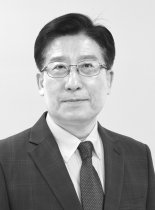[Noh Dong-Il Column] Does Prosecution Reform Serve the Public Interest?
- Input
- 2025-10-13 20:16:41
- Updated
- 2025-10-13 20:16:41

This is an excerpt from the novel-like 'Final Statement' by Kang Man-soo, former Minister of Economy and Finance. It documents the period from his arrest on December 1, 2016, until his parole on August 13, 2021, during which he claims to have lost his dignity, money, and freedom. The Prosecution Service searched Kang's home on August 2, 2016, and requested an arrest warrant on September 21, which was denied by the court. According to media reports at the time, "the determined prosecutors found additional charges and reapplied for an arrest warrant," leading to Kang's detention.
Abuses of prosecutorial power often arise in certain special (ex officio) investigations. To achieve results in cases they initiate, prosecutors may set predetermined outcomes and conduct excessive investigations. Therefore, eliminating the Prosecution Service’s authority to initiate investigations should be the starting point for reform. This is why I fundamentally agree with prosecution reform, regardless of the process. The so-called 2025 version of the three major special prosecutors’ overreach further demonstrates the need for such reform.
The next issue is crucial. Denying the Prosecution Service the authority to initiate investigations is not synonymous with abolishing the Prosecution Service itself. While I criticize abuses of prosecutorial power, I do not agree with demonizing the entire institution. Whether it is the Prosecution Service or the police, investigative authority is where the state’s coercive power is most evident. Both the establishment and modification of such authority must be approached with caution. Abolishing the Prosecution Service simply to make it a topic for holiday table discussions is not the proper order for genuine reform. I must express 'agreement in principle, but doubts in detail.' It would be prudent to thoroughly review and analyze the results of the Moon Jae-in administration’s so-called 'complete deprivation of prosecutorial investigative authority' before implementing further reforms.
The biggest problem with the reforms under the Moon Jae-in administration is that the police were granted the authority to close investigations, while the Prosecution Service was reduced to a body that could not oversee the police. The establishment of the Prosecution Service further cemented this. The 1987 torture and death of Park Jong-cheol was a watershed moment in Korea’s democratization. The revelation of his death sparked the June Democratic Struggle. Without prosecutorial oversight of the police, the truth behind the police’s claim that 'he died after banging the desk' would have been buried forever. It is not unreasonable to expect that if most cases end with police closure, many incidents will be concealed. There are also concerns from the field that merely granting the Prosecution Service the right to request supplementary investigations will produce more victims of unjust crimes.
The October 2025 arrest of former Chairman of the Korea Communications Commission Lee Jin-sook serves as a preview of the dangers that may arise if the police actively comply with the demands of those in power. Regardless of the timing, this incident is symbolic of the police’s potential future. Without appropriate oversight mechanisms such as the Prosecution Service’s supplementary investigative rights, there may come a time when it is too late to act. Even if there are reservations about granting the Prosecution Service investigative authority for supplementary investigations, alternatives exist.
'If a police investigation is insufficient, the Prosecution Service must specify the exact reasons and details requiring supplementation when requesting a supplementary investigation. Such requests should set a specific period (for example, a minimum of one month and a maximum of three months), and only if the police fail to conduct the supplementary investigation within that period may the Prosecution Service proceed. Even then, investigations beyond the scope of the original police case are prohibited.'
According to social contract theory, people form a state to address the instability of the natural state and to protect individual rights. The state’s fundamental duty is to guarantee the inviolability of citizens’ lives, bodies, and property through security and public order. Not only is it a violation of state duty to infringe upon individual rights through the exercise of state power, but also to neglect the protection of those rights through inaction. Any reform is meaningful only when it serves the public interest.
On August 29, President Lee Jae Myung stated that he might personally preside over a forum on prosecution reform. 'We must produce practical alternatives, and if there are differences of opinion, we should establish a culture of debate... and develop reasonable measures that serve the public interest.' This statement aligns with the principle that the beneficiaries of all reforms should be the people. I hope that, during the one-year grace period, a forum led by President Lee will yield reasonable and public-oriented solutions.
dinoh7869@fnnews.com
dinoh7869@fnnews.com Noh Dong-Il Editor-in-Chief Reporter